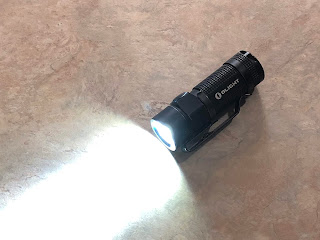Tis the season for buying junk - Christmas shopping, retail therapy, and excess.
Take it back a notch this Christmas
My lovely partner gets super into buying Christmas gifts. Honestly she picks really good gifts for people, but the amount of stuff seems excessive. I get that it's a tradition and that it is fun to give gifts, but it seems like there's a line that people cross. Maybe most important is to realize that when there is a very strong expectation of gift-giving it can be an unnecessary strain on others.
I'm not saying that exchanging presents is bad, nor am I going to say that Christmas has been corrupted. I bought presents for people too, and I don't think there's anything inherently wrong with the practice. Like any other interest or activity, people can spend money on gift giving but should not fail to reign it in.
Why?
Lop-sided gift giving
The people you shower with gifts may not be able to, or may not want to, reciprocate in gift purchases. Lopsided gift-giving can make people feel guilty when not "buying into" holiday purchasing. Where people simply can't afford to buy everyone presents, receiving them can be an uncomfortable experience.
- Don't make assumptions. Pay attention to people. You should have an idea of how your friends and family feel if you spend time with them. It's okay to talk to someone to ask about what they want or need. Make it a point to talk to the parents of children that you want to buy gifts for. Express your interest in gift giving to see if it is alright with them and ask for suggestions.
Wastefulness
People usually don't need more random stuff. Many gifts just won't be used. These items are doomed to be crammed into closets and attics filled with other junk. Eventually these things will either be thrown in the garbage or donated to charity (at least there's that).
- Giving useful gifts means more. Imagine your gift getting used every day! Put some effort into selecting your gifts if you are going to participate in the gift exchange. When in doubt, give nice versions of consumables you know they already use. Nice coffee or tea instead of yet another mug, for example. (Buying from local businesses is a nice touch, and very trendy too). If you don't know someone well enough to give them an appropriate gift, think about why are you giving them a gift? If you still want to give a gift, it's okay to talk to them about it!
- Gifts that rely on replaceable batteries are likely to run out of power and never be used again. Don't give someone the added expense of purchasing AA batteries in order to use your gift. Similarly, if you are going to give electronics as a gift, it is probably a good idea to make sure that the gift works with the electronics they already use. Not only do some product's software systems not work with others, but a gift that makes someone use a different charging cable standard (USB / Micro USB / USB-C / Lightning) can mean an unused gift. Remember that it is okay to ask them what they want! Electronics can be a very good gift, but there are a lot of pitfalls in selecting them for others.
Bang-for-your buck
At the end of the day, your money isn't doing very much. Make it do more! People aren't necessarily going to remember what you gave them. What they do keep is a general impression that you think about them and care about them because you did something in their name.
- "What to buy for the person that has everything" is a sad headline if you think about it. So many of us have so much and take it all for granted. Think about putting your money in a savings account for an emergency instead of spending it. You do not have to do anything. That an expectation of gift-giving should override your better judgment about your spending habits is absurd. Do not let yourself be pressured into spending money that you don't have to buy gifts that people do not need. If it really matters to you that you are able to give a present of some kind, why give something that will just end up in a drawer or a closet? Even a gift card, depending on what it is, might not get used. Your money is just getting thrown in a trash can, shoved into the back of a closet, and wasted.
Alternative gift ideas - Do something different
Think about donating to a charity "in someone's name" (it's a thing!) as a gift. Two birds with one stone right? The few times I've gotten this kind of gift it's been very sweet. Maybe tailor the charity to the person, though. If a donation isn't inline with someone's interests, it might not go over well. Donating to a shared charitable interest can be a nice touch, and is often a safe bet. Depending on the organization, just a couple dollars can go a long, long way. If all else fails, think about donating to a charity that provides mental health services and assistance to homeless people. Wherever you live, there are people very close to home that need help.
A gift doesn't have to be bought, nor does it have to be a surprise. Homemade gifts and "hand-me-downs" (there has to be a better name for this) get a really, really, super bad rap. To pull off a homemade or hand-me-down gift you need to keep it very personal, rather than having it look like you are just unloading stuff you don't want. For whatever reason something useless, but newly purchased, is a satisfactory present while something extremely useful, but used, carries with it the presumption of being bad present. Isn't that kind of silly? Homemade gifts come with their own difficulties.
As an example: hand-knitted clothing, so often the product of a hobby, is a nice present that can go horribly wrong. Including the recipient in the designing phase of a gift will both make it a much better gift and give an indication of the time and effort you put into making it.
Maybe do away with the gifts altogether. Try spending quality time with your people instead of giving a present. Sadly, it seems like people are forgetting to enjoy the company of their friends and family instead of just being around these people while they stare at their phone screens.
My lovely partner gets super into buying Christmas gifts. Honestly she picks really good gifts for people, but the amount of stuff seems excessive. I get that it's a tradition and that it is fun to give gifts, but it seems like there's a line that people cross. Maybe most important is to realize that when there is a very strong expectation of gift-giving it can be an unnecessary strain on others.
I'm not saying that exchanging presents is bad, nor am I going to say that Christmas has been corrupted. I bought presents for people too, and I don't think there's anything inherently wrong with the practice. Like any other interest or activity, people can spend money on gift giving but should not fail to reign it in.
Why?
Lop-sided gift giving
The people you shower with gifts may not be able to, or may not want to, reciprocate in gift purchases. Lopsided gift-giving can make people feel guilty when not "buying into" holiday purchasing. Where people simply can't afford to buy everyone presents, receiving them can be an uncomfortable experience.
- Don't make assumptions. Pay attention to people. You should have an idea of how your friends and family feel if you spend time with them. It's okay to talk to someone to ask about what they want or need. Make it a point to talk to the parents of children that you want to buy gifts for. Express your interest in gift giving to see if it is alright with them and ask for suggestions.
Wastefulness
People usually don't need more random stuff. Many gifts just won't be used. These items are doomed to be crammed into closets and attics filled with other junk. Eventually these things will either be thrown in the garbage or donated to charity (at least there's that).
- Giving useful gifts means more. Imagine your gift getting used every day! Put some effort into selecting your gifts if you are going to participate in the gift exchange. When in doubt, give nice versions of consumables you know they already use. Nice coffee or tea instead of yet another mug, for example. (Buying from local businesses is a nice touch, and very trendy too). If you don't know someone well enough to give them an appropriate gift, think about why are you giving them a gift? If you still want to give a gift, it's okay to talk to them about it!
- Gifts that rely on replaceable batteries are likely to run out of power and never be used again. Don't give someone the added expense of purchasing AA batteries in order to use your gift. Similarly, if you are going to give electronics as a gift, it is probably a good idea to make sure that the gift works with the electronics they already use. Not only do some product's software systems not work with others, but a gift that makes someone use a different charging cable standard (USB / Micro USB / USB-C / Lightning) can mean an unused gift. Remember that it is okay to ask them what they want! Electronics can be a very good gift, but there are a lot of pitfalls in selecting them for others.
Bang-for-your buck
At the end of the day, your money isn't doing very much. Make it do more! People aren't necessarily going to remember what you gave them. What they do keep is a general impression that you think about them and care about them because you did something in their name.
- "What to buy for the person that has everything" is a sad headline if you think about it. So many of us have so much and take it all for granted. Think about putting your money in a savings account for an emergency instead of spending it. You do not have to do anything. That an expectation of gift-giving should override your better judgment about your spending habits is absurd. Do not let yourself be pressured into spending money that you don't have to buy gifts that people do not need. If it really matters to you that you are able to give a present of some kind, why give something that will just end up in a drawer or a closet? Even a gift card, depending on what it is, might not get used. Your money is just getting thrown in a trash can, shoved into the back of a closet, and wasted.
Alternative gift ideas - Do something different
Think about donating to a charity "in someone's name" (it's a thing!) as a gift. Two birds with one stone right? The few times I've gotten this kind of gift it's been very sweet. Maybe tailor the charity to the person, though. If a donation isn't inline with someone's interests, it might not go over well. Donating to a shared charitable interest can be a nice touch, and is often a safe bet. Depending on the organization, just a couple dollars can go a long, long way. If all else fails, think about donating to a charity that provides mental health services and assistance to homeless people. Wherever you live, there are people very close to home that need help.
A gift doesn't have to be bought, nor does it have to be a surprise. Homemade gifts and "hand-me-downs" (there has to be a better name for this) get a really, really, super bad rap. To pull off a homemade or hand-me-down gift you need to keep it very personal, rather than having it look like you are just unloading stuff you don't want. For whatever reason something useless, but newly purchased, is a satisfactory present while something extremely useful, but used, carries with it the presumption of being bad present. Isn't that kind of silly? Homemade gifts come with their own difficulties.
As an example: hand-knitted clothing, so often the product of a hobby, is a nice present that can go horribly wrong. Including the recipient in the designing phase of a gift will both make it a much better gift and give an indication of the time and effort you put into making it.
Maybe do away with the gifts altogether. Try spending quality time with your people instead of giving a present. Sadly, it seems like people are forgetting to enjoy the company of their friends and family instead of just being around these people while they stare at their phone screens.




Occupational therapists offer instruction in a wide range of skills, including social inclusion, caring, time management, and stress management. The recovery of a person's mental health and their social involvement in society require occupational support for those who find it difficult to engage in simple social activities. To enable people to participate in society, this includes boosting their self-assurance, involving them in social groups, and even preparing them for job or training.
ReplyDelete